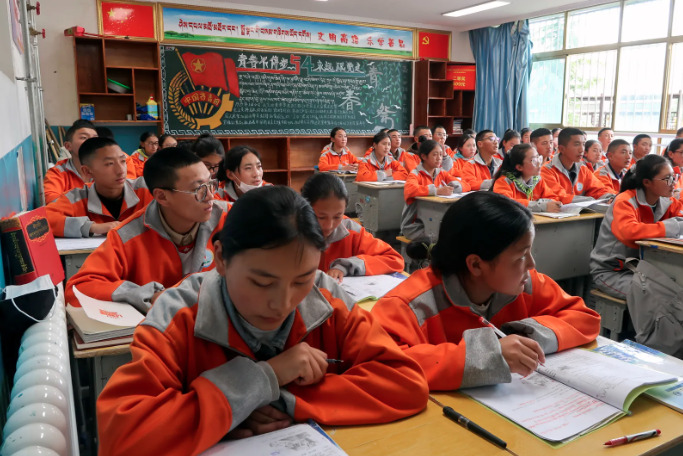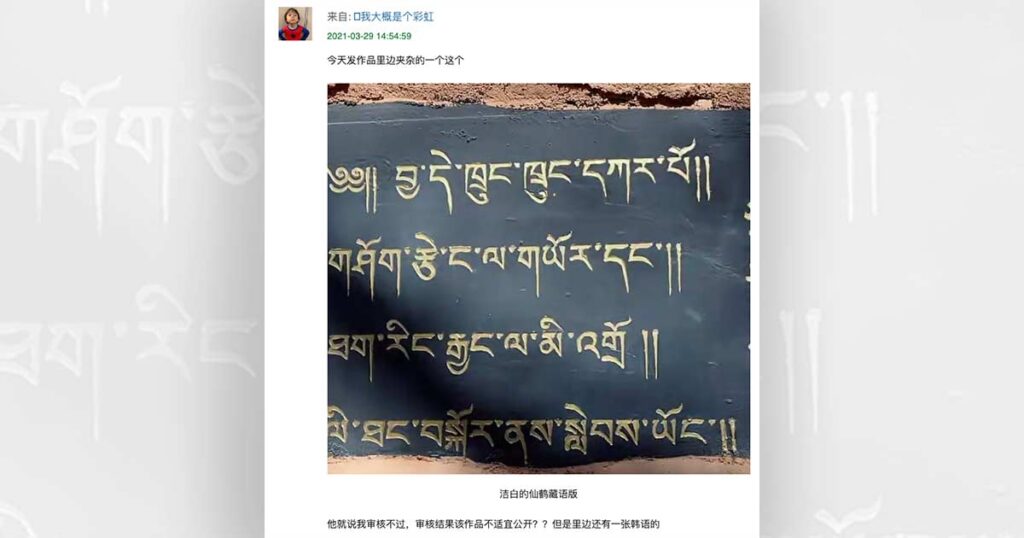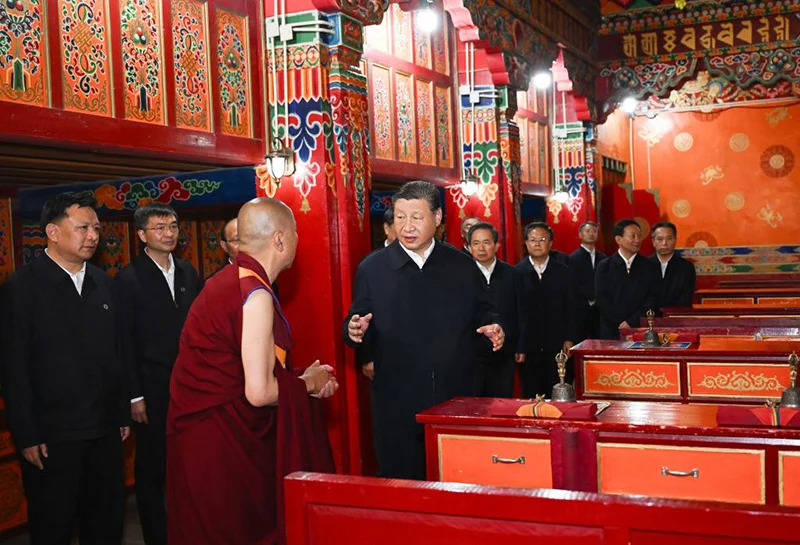 China’s brutal treatment of Uyghur Muslims in the western region of Xinjiang has won tremendous international attention in recent years, with human rights groups decrying the systematic detention in internment camps of a million people, as well as the Chinese state’s attempts to suppress Uyghur culture and the practice of Islam. But the plight of another oppressed ethnic group has flown largely under the radar. In Tibet, the Chinese state has also embarked on a campaign to quash the identity of a distinct people. Its chief weapon in Tibet is not dystopian camps but something seemingly more quotidian: residential schools.
China’s brutal treatment of Uyghur Muslims in the western region of Xinjiang has won tremendous international attention in recent years, with human rights groups decrying the systematic detention in internment camps of a million people, as well as the Chinese state’s attempts to suppress Uyghur culture and the practice of Islam. But the plight of another oppressed ethnic group has flown largely under the radar. In Tibet, the Chinese state has also embarked on a campaign to quash the identity of a distinct people. Its chief weapon in Tibet is not dystopian camps but something seemingly more quotidian: residential schools.
Nearly a million Tibetan children live in state-run residential schools on the Tibetan plateau. Chinese authorities subject these children to a highly politicized curriculum designed to strip them of their mother tongue, sever their ties to their religion and culture, and methodically replace their Tibetan identity with a Chinese one. Children as young as four have been separated from their parents and enrolled in boarding kindergartens under a recruitment strategy based largely on coercion.
This alarming development has prompted a series of congressional hearings and formal inquiries in the United States, Canada, and the United Nations. “We are very disturbed that in recent years the residential school system for Tibetan children appears to act as a mandatory large-scale program intended to assimilate Tibetans into majority Han culture, contrary to international human rights standards,” a group of UN experts declared earlier this year. In August, U.S. Secretary of State Antony Blinken announced visa sanctions against Chinese officials responsible for this program.
Click here to read more.





